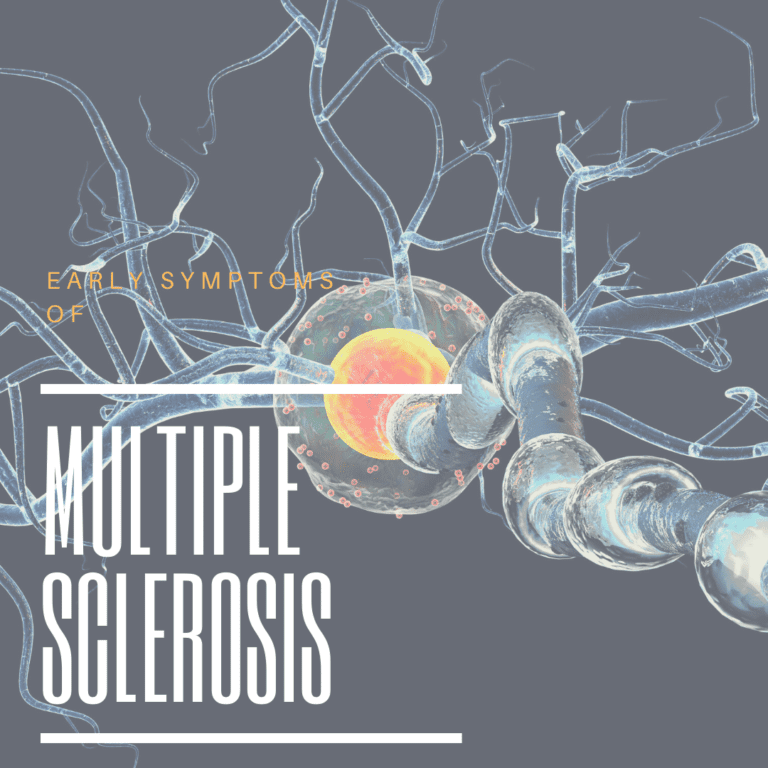According to the National MS Society, around 1 million Americans are living with multiple sclerosis. Multiple sclerosis is an immune-mediated process, which means the body’s immune system abnormally attacks the central nervous system and its components: the brain, spinal cord, and optic nerves. Specifically, the fatty insulation that surrounds nerve fibers, known as myelin, becomes inflamed and damaged which affects the nerves ability to transmit messages.
There are four different types of MS, including:
- Clinically Isolated Syndrome (CIS) is the first episode of MS symptoms that result from inflammation and demyelination in the CNS. The episode must last at least 24 hours to be considered a CIS, however a single episode does not meet the diagnostic criteria for MS. People who experience a CIS may or may not eventually develop MS.
- Relapsing-remitting MS (RRMS) is characterized by clearly defined attacks of new or increasing symptoms followed by periods of partial or complete recovery. However, there is no progression of the disease during remission periods. This is the most common form of MS and around 85% of people with MS are diagnosed with RRMS.
- Secondary Progressive MS (SPMS) is similar to RRMS, however individuals with SPMS experience a progressive worsening of neurological function over time. In some cases, people with RRMS may eventually develop SPMS.
- Primary progressive MS (PPMS) is characterized by the worsening of neurological symptoms without periods of remission. Only about 15% of individuals with MS are diagnosed with PPMS.
Most people with MS generally experience their first symptoms between the ages of 20 and 40. When it comes to MS, however, the types and severity of symptoms can vary from person to person. The types and severity of symptoms can also vary within the same individual. Therefore, it is important to keep track of symptoms if you are concerned you may be experiencing symptoms of MS.
Early symptoms of MS can include one or more of the following:
Vision Problems

Since MS affects the optic nerve, vision problems are one of the most common early signs of MS. Vision problems that can indicate MS include: blurred vision, double vision, pain when looking to one side, and vision loss.
Nerve Tingling or Numbness
MS also affects the various nerves throughout the body, however some common locations where numbness or tingling is experienced are the face, fingers, arms, and legs.
Muscle Spasms
Muscles in the legs and back tend to become stiff and may even spasm. In the legs, this can cause painful jerking movement. Muscle spasms can also lead to pain and stiffness in the joints.
Fatigue
Around 80% of people in the early stages of MS experience unexplained, sudden fatigue due to nerve deterioration in the spinal column. This can also cause feelings of weakness, especially in the legs.
Balance Problems
Some people with MS experience feelings of dizziness and lightheadedness, which can lead to problems with balance and coordination. In some cases, people can even experience vertigo. These symptoms tend to occur when standing up from a sitting or reclined position.
Bladder and Bowel Problems

Around 80% of people with MS experience problems with their bladder, however it is less common to have bowel problems. Generally speaking, bladder problems associated with MS include urinating frequently, having a strong urge to urinate, or being unable to hold urine.
Sexual Dysfunction
MS can also cause problems with becoming aroused due to the fact that the CNS is a key structure involved in feelings of sexual arousal.
Cognitive Problems
About 50% of people with MS experience cognitive problems such as memory problems, inability to stay organized, problems with language, or a short attention span.
Mental Health Problems
Many people with MS also suffer from major depression. Additionally, coping with symptoms of MS can cause irritability, mood swings, and a condition known as pseudobulbar affect which causes uncontrollable bouts of crying and laughing.

Dr. Kashouty, a diplomate of the American Board of Psychiatry and Neurology (ABPN), practices general neurology with fellowship trained specialization in clinical neurophysiology. Dr. Kashouty finds the form and function of the nerves and muscles the most interesting part of neurology, which is what led him to specialize in neurophysiology with more emphasis on neuromuscular conditions. He treats all neurological diseases, but his main focus is to treat and manage headaches, movement disorders and neuromuscular diseases.




